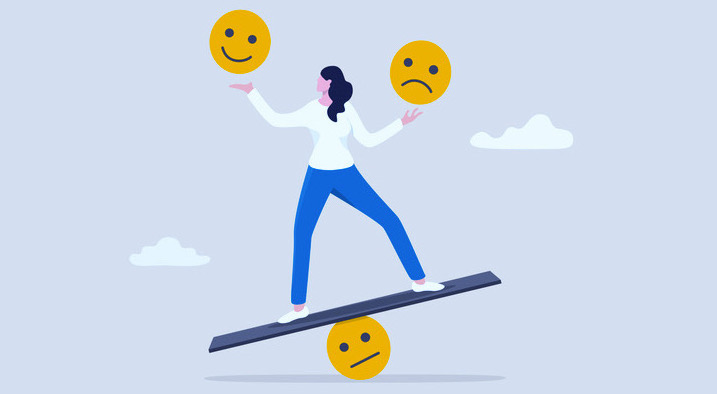There are many benefits to supporting workplace mental health and building physical and mental resilience in your team members, from employees being more engaged and productive to fewer problems with staff absenteeism, burnout, and turnover.
Not to mention meeting the legal responsibility all employers have to manage risks to employees’ mental and physical health, just like they do any other health and safety risk.

Resilience hinges on supporting people and giving them opportunities to build the knowledge, skills, and capabilities to thrive at work and respond effectively to stress, challenges, and change.
In this article, we look at ways business leaders and managers can support employee wellbeing, help people deal with challenges, and build an open, healthy company culture where everyone can function at their best.
Mental health in the workplace
There are plenty of statistics that highlight the mental health challenges many Kiwi employees face. 1 in 5 New Zealand workers report always or often being stressed by work, according to Statistics New Zealand’s benchmark Survey of working life.
BusinessNZ’s latest Workplace Wellness Survey found that more than half of businesses surveyed had seen an increase in stress and anxiety levels since the last survey in 2020. Workload and long hours were the 2 main causes of work-related stress, while financial concerns and relationships were the 2 main causes of non-work-related stress.
The survey also found that the average employee was absent for 5.5 days a year, a cost of around $2.86 billion to the total economy.
The benefits of a mentally healthy workplace
Providing a safe and positive workplace is a win-win situation for employers and employees. Estimates vary, but for every $1 businesses invest in effective workplace mental health strategies, they can expect to receive an average return of $2-4.
Some of the proven benefits are:
- Increase in productivity (mental health is the primary cause of productivity loss in most Westernised countries).
- Increase in employee engagement, job satisfaction, and retention.
- Decrease in work-related injuries and illnesses.
- Decrease in burnout, absenteeism, and presenteeism (being at work but preoccupied or distracted).
- Decrease in turnover and recruitment costs.
- Increase in the attraction of top talent.
- Lower societal costs - in OECD countries, mental health accounts for a loss of 5% of GDP; ACC paid $65.5m in 2019/20 for active work-related mental injury costs.
All these things also mean you will spend less time managing disruption and issues and can focus on building the business.
Creating a culture of openness and support
The Workplace Wellness Survey 2023 found more organisations than ever:
- Recognise that employee wellness impacts productivity, and
- Have processes in place to support team members suffering from stress, including Employee Assistance Programmes, flexible working, diversity and inclusion policies and practices, and mental-wellbeing training.
However, there can be a real disparity between what your business offers, in terms of mental health awareness and support, and what employees experience in the workplace.
The challenge for business leaders and managers is proving that wellbeing is a priority for the organisation and creating an environment that truly supports mental health and builds resilience.
There are many parts that help cement wellbeing in the day-to-day workplace culture. Leaders need to lead, so take a proactive approach in looking after your own mental (and physical) health and promoting open health and wellbeing conversations with your team.
Increasing awareness of mental wellbeing and encouraging all staff to look out for each other is vital.
There can be a real stigma around mental health challenges, and an open and supportive working culture will help reduce discrimination and fear (the NZ Health Promotion Agency found the workplace was one of the most common settings for discrimination against people who suffered from mental health problems and people were very unlikely to want to disclose mental illness to their employer or colleagues).
In a wider context, your team members shouldn’t be unafraid of making decisions and mistakes or admitting when they are finding things tough. This helps build their trust and confidence as well as their resilience.
Invest in training your people (and yourself) about mental health awareness, stress management strategies, recovery, and self-care - both physical and mental. Provide Employee Assistance Programmes, so employees have a safe space to discuss concerns with trained specialists and make sure your people are aware of the services.
And don’t ignore the connection between mental and physical health; exercise and mindfulness programmes that your team can participate in, e.g. step challenges or lunchtime yoga, can be a great benefit.
Key ingredients of an open and supportive culture
- Awareness.
- Training.
- Organisational support.
Watch our panel discussion on promoting employee wellbeing
MyHR CEO Jason Ennor was joined by Dr Fiona Crichton and Sir John Kirwan to explore practical ways SME leaders and employers can support employee wellbeing and build a better business.
Supporting smart work and work-life balance
A 2021 survey by US workplace mental health specialists, Unmind, found that 90 percent of US employers surveyed believe their employees are experiencing burnout and 45 percent of employees surveyed had experienced symptoms of burnout.
In some respects, increased workplace flexibility and remote working has actually reduced employee wellbeing, e.g. isolation and not interacting with colleagues as much, working longer hours or always being ‘on call’, juggling family and work responsibilities.
So, in response, savvy employers are applying principles of smart work design (e.g. involving staff in decisions on when, where, and how work is performed, closely monitoring workloads and breaks, ensuring the work environment is safe and encouraging) and supporting better work-life balance.
Top 5 interventions for supporting better work-life balance
- Offering increased paid time off.
- Offering increased support for parents.
- Focusing on productivity, rather than working hours.
- Asking employees how they would like to improve work-life balance.
- Providing leadership training around promoting work-life balance among colleagues.
Remember, any intervention will be most effective when it is truly supported and championed by the leadership team.
Learn more about building a strong company culture.
As a caveat, we are HR experts, not psychologists or counsellors. If you or anyone you know or work with is experiencing mental distress or ill health, please seek the help of trained professionals.




